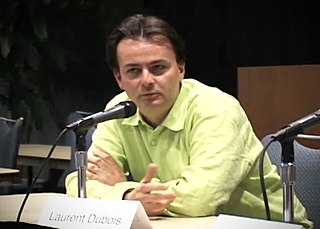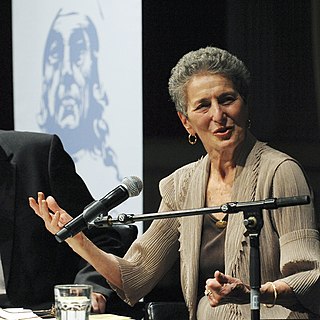A Quote by Pankaj Mishra
The French Revolution actualised the Enlightenment's greatest intellectual breakthrough: detaching the political from the theocratic.
Related Quotes
In comparison to the French Revolution, the American Revolution has come to seem a parochial and rather dull event. This, despitethe fact that the American Revolution was successful--realizing the purposes of the revolutionaries and establishing a durable political regime--while the French Revolution was a resounding failure, devouring its own children and leading to an imperial despotism, followed by an eventual restoration of the monarchy.
Justice has its anger, my lord Bishop, and the wrath of justice is an element of progress. Whatever else may be said of it, the French Revolution was the greatest step forward by mankind since the coming of Christ. It was unfinished, I agree, but still it was sublime. It released the untapped springs of society; it softened hearts, appeased, tranquilized, enlightened, and set flowing through the world the tides of civilization. It was good. The French Revolution was the anointing of humanity.
The transformations of the French empire itself or of French power structures themselves as well as the emergence of a kind of language of equal rights starting with the American Revolution and the French Revolution provided an opportunity and in some ways connected with other kinds of ground level desires or hopes and ideologies for freedom that were coming out of the plantation regime itself.
The French Revolution, Fichte's Theory of Knowledge, and Goethe's Wilhelm Meister are the three greatest tendencies of the age. Whoever takes offence at this combination, and whoever does not consider a revolution important unless it is blatant and palpable, has not yet risen to the lofty and broad vantage point of the history of mankind.
The most important quote about poetry and politics that I know is from a different situationist, Guy Debord. He was locked in a debate with the French Surrealists, many of whom by the 40s and 50s were part of the French communist party apparatus. Many Surrealists eventually argued for instrumentalizing art for political ends. Debord countered, "I don't want to put poetry in the service of revolution. I want to put revolution in the service of poetry".
Carla Hesse has given us an astonishing new look at women's struggle for independent expression and moral autonomy during the French Revolution and afterward. Denied the political and civil rights of men, literary women plunged into the expanded world of publication, answering the men's philosophical treatises with provocative novels about women's choices and chances. Lively and learned, The Other Enlightenment links women from Madame de Stael to Simone de Beauvoir in an alternate and daring path to the modern.
A revolution is bloody, but America is in a unique position. She's the only country in history in a position actually to become involved in a bloodless revolution. The Russian revolution was bloody, Chinese revolution was bloody, French revolution was bloody, Cuban revolution was bloody, and there was nothing more bloody then the American Revolution. But today this country can become involved in a revolution that won't take bloodshed. All she's got to do is give the black man in this country everything that's due him, everything.





































